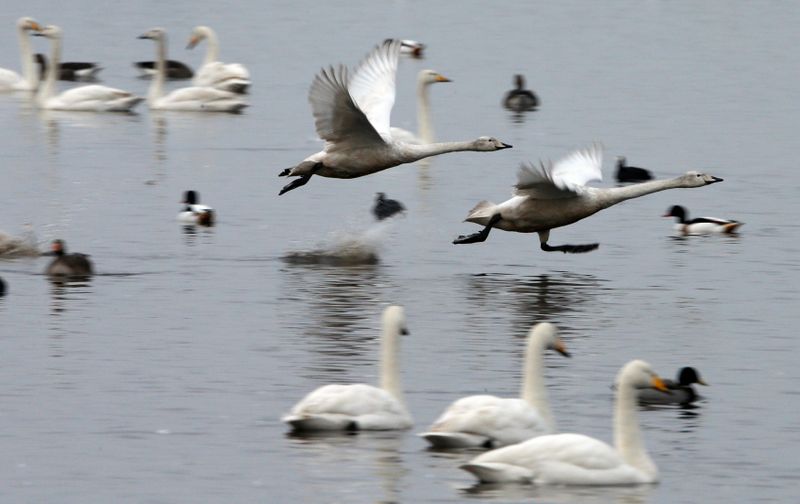LONDON (Reuters) - Restoring degraded natural habitats such as peatland and coastal marsh is crucial if Britain is to meet its ambitious climate change targets, according to a report from the Wildlife Trusts charity.
The government is aiming for "net zero" emissions of greenhouse gases - mostly from fossil fuels - by 2050, but a progress report last year by the Climate Change Committee (CCC) advisory body said policy actions fell "well short".
In a report entitled "Let Nature Help", published on Wednesday, Wildlife Trusts identifies habitats that, if restored, could absorb around a third of Britain's CO2 emissions.
"It makes no sense to continue destroying natural habitats when they could help us -- nature's fantastic ability to trap carbon safely and provide other important benefits is proven," Craig Bennett, CEO of The Wildlife Trusts says.
The report says the country's peatlands store around 3.2 billion tonnes of CO2 but are heavily degraded, while Britain's coastal seagrass meadows, another important carbon store and habitat for young fish, have halved since 1985. Saltmarsh and inland wetlands have also suffered large declines.
"Nature in the UK is in a sorry state and important habitats are damaged and declining," Bennett said. "Efforts to cut our emissions must be matched with determined action to fix our broken ecosystems so they can help stabilise our climate."
Wildlife Trusts point to nature restoration projects such as the re-wetting of 3,700 hectares of fenland in Cambridgeshire that will lock up and estimated 325,000 tonnes of CO2 each year. It has also been instrumental in coastal realignment on the Essex coast and beaver reintroduction in Scotland.

The government has pledged to plant 30 million trees per year between 2020 and 2025 and in the March budget set aside 640 million pounds for the Nature for Climate Fund.